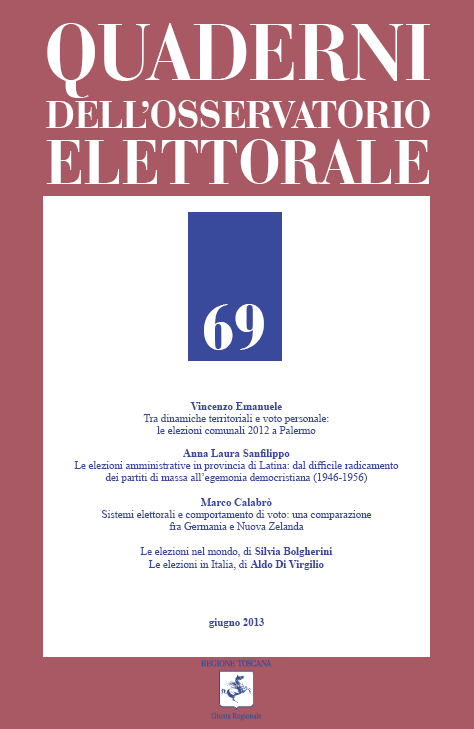Published 2013-06-30
How to Cite
Abstract
The 2012 municipal election in Palermo produced an unexpected outcome. In the Sicilian city - for a long time a conservative stronghold- the center-right candidate, Massimo Costa did not succeed to reach the second ballot and the election was won by the former Major Leoluca Orlando, supported by a radical left coalition. Orlando prevailed with a sensational 72% of the vote share against the winner of the center-left primary elections, Fabrizio Ferrandelli.
What happened in the 2012 Palermo municipal election? Did the Sicilian capital move suddenly toward the left? Which factors fostered this sharp and unpredictable electoral change that altered the long-time-established political landscape of the City?
To answer these questions, this article analyzes the results of the 2012 municipal election in Palermo through an electoral geography approach and the use of a quantitative methodology with ecological data. In particular, the article makes use of both the territorial study of turnout and elections results and the voting ecological estimates generated with the traditional Goodman model.
The empirical analysis shows that this election was strongly influenced by factors linked to the local context more than by authentically political ones. In other words, Palermo did not move toward the left. Moreover, the internal electoral segmentation of the City between central and peripheral neighborhoods persisted as the main determinant of the vote choice.


